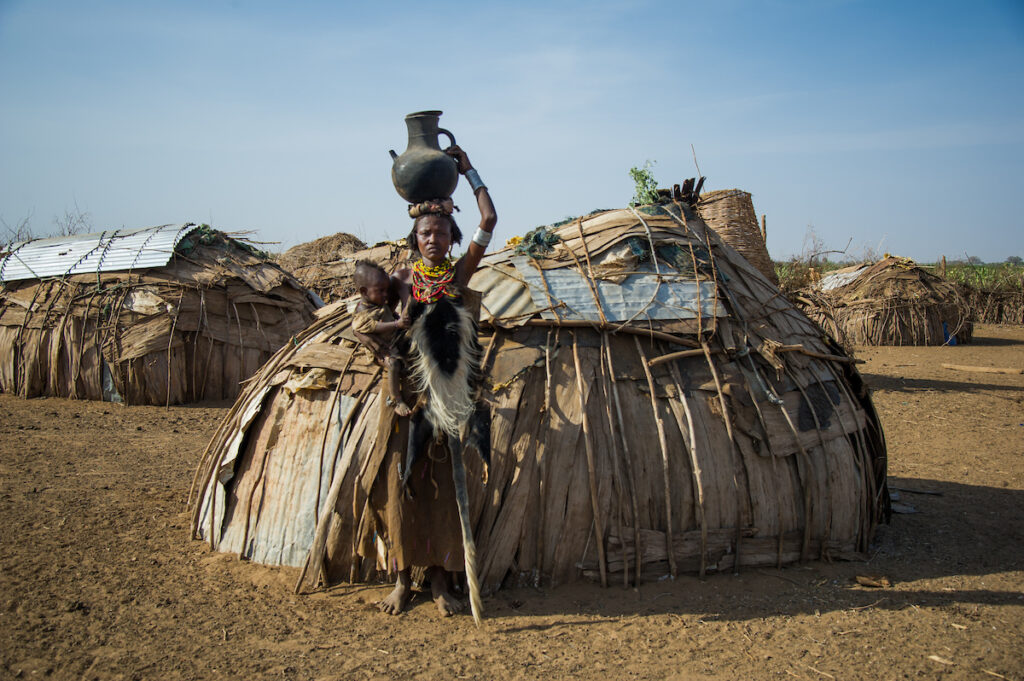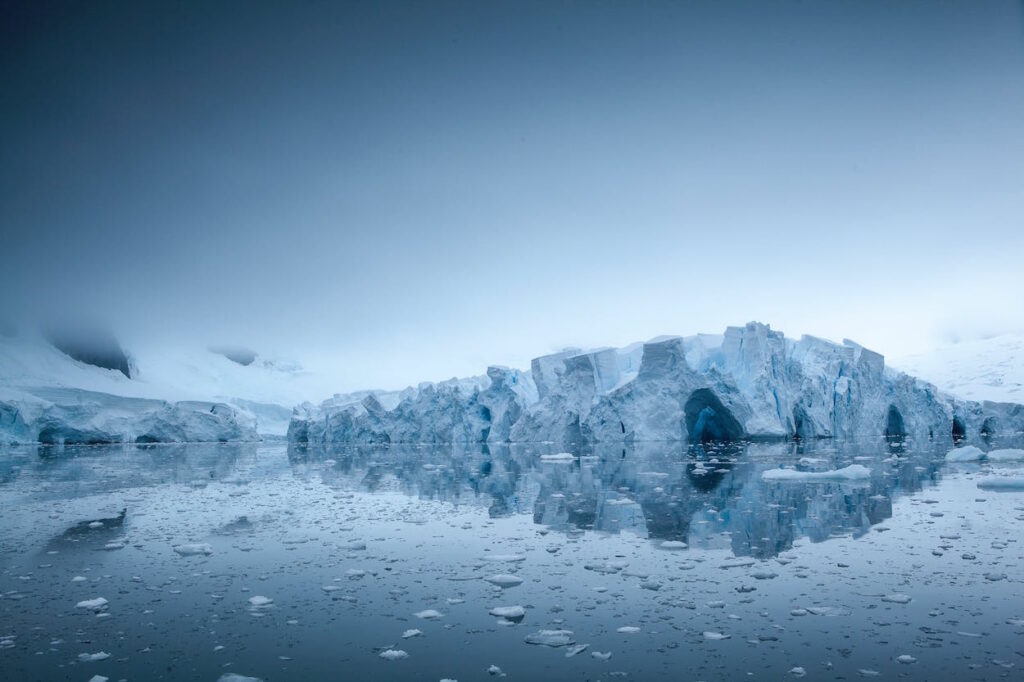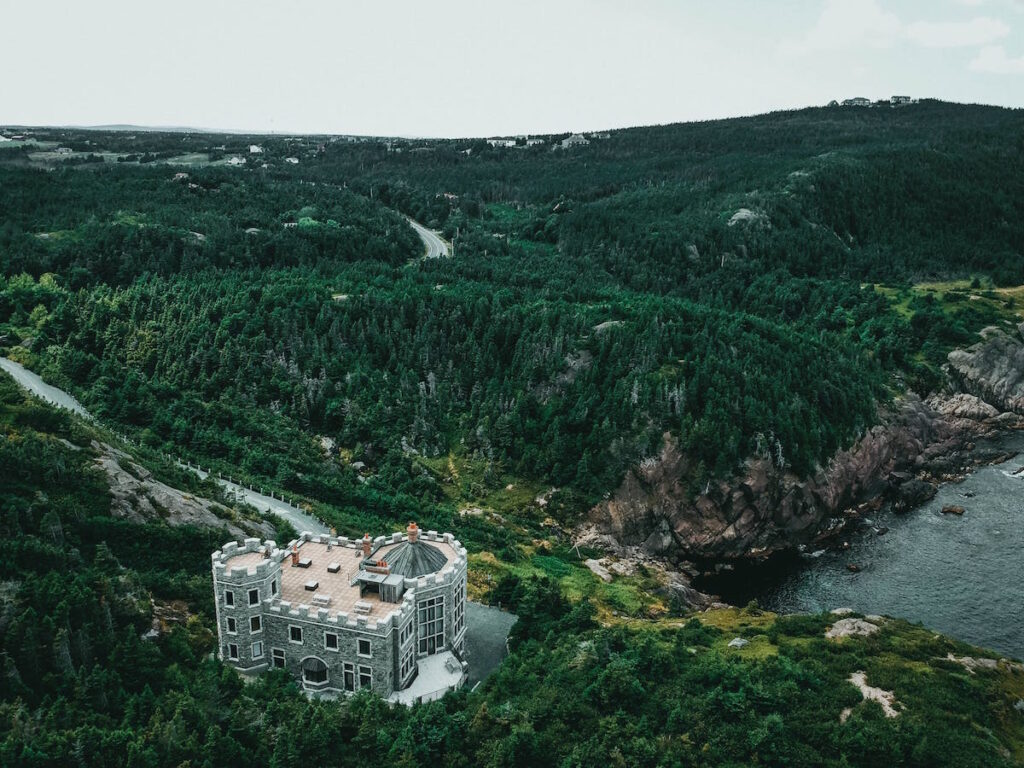The series “Departures” chronicled two Canadian friends Scott Wilson and Justin Lukach as they quit their day jobs to make their way around the world for two years fully experiencing different local cultures and customs. Scott’s business partner Andre Dupuis, an award winning videographer, chronicled all the adventures along the way.
I got hooked on the TV show “Departures” a few years ago when it was on Netflix and binge watched it while I was traveling on airplanes each week. Now the series can be watched on Amazon Prime for those of you who missed out on it the first time it ran.
We caught up with Wilson, one of the stars of the show to discuss his travels and life after the show. He also talked about his other series “Descending” and “Into the Rising Sun.”
Wilson spoke candidly about some of his most memorable experiences which included trips to North Korea, Ethiopia and Antarctica. Being from Canada, he also gives some suggestions on where to go for a great Canadian adventure.
No matter where he is in the world or what series he’s filming, he also explains to The Travel Addict why it’s more meaningful to go off the beaten path. He talks about the impact of going beyond tourist attractions and why it is so important for him.
Check out our interview with traveler Scott Wilson below.
Scott Wilson, what have you been up to since “Departures”?
Since “Departures,” we did a follow-up program of our own design called “Descending” exploring the underwater world. The other 70% of our planet is water. Me and Andre (Dupuis) have been business partners for over 20 years.
We started diving when we were doing “Departures” and were blown away by the experience of scuba diving and being able to access a whole new planet within our planet.
We wanted to apply the same mentality of “Departures” to “Descending,” if we can do it, you can do it. There is nothing special about us, nothing unique. We are not rich or of special means. We aren’t brilliant scientists. We’re just normal people. It was an attempt to be inspirational.
Diving, for many years, for some reason, scared me off. I thought it was something beyond me – I wouldn’t be able to do and I did it. It opened my eyes to a whole new part of the planet. That was the approach to that program.
We did 13 one-hour episodes exploring the underwater world throughout the planet. Not just in the tropics looking at pretty fish and pretty pictures in the Caribbean. It was Iceland and Northern Canada, the Solomon Islands looking at World War II wrecks.
It was all over the world, just to catch a glimpse of what is accessible in this day and age. Since then, we have done a number of series for ourselves and others, for Discovery US, and Travel Channel U.S.
We finished a miniseries called “Into the Rising Sun” which had me on a motorcycle exploring Japan. It is always something new. It is always travel-related. That is kind of our wheelhouse.
Can you talk about your experience traveling in North Korea?
The whole trip was bizarre in a good way. It turned into two episodes while we were there. There are a lot of firm and staunch opinions on North Korea. It generates a lot of conversation. In the end, if what we do generates a lot of conversation, it is the biggest compliment we can have.
One of the criticisms we have heard for doing shows there is we went there and are supporting this regime. Our approach there was no different than any of the other shows in any of the places we have visited.
We check our egos at the door, we check all preconceptions at the door. We just go and experience a country as best we could as a fly on the wall.
“The people you are directly interacting with, are just people.”
Going to North Korea comes with a lot of rules and a lot of regulations. We weren’t blind to the fact what we were seeing was what they wanted us to see and what we were allowed to see.
We weren’t going in there as journalists investigating what goes inside the prisons there. That’s not what we do. That’s not our job. Yes, things are going on there that are not the way things should be done, to say the least.
What we wanted to do is go there and showcase what it is like to spend a week inside the country. Memories of that whole thing are one solid memory and at the same time, it’s all a blur. In the first 24 hours inside the country, you are walking on eggshells and don’t know what to say or how to act.
You don’t want to offend anyone or do the wrong thing. We were with government guides the entire time. They were leery of us too because we have a camera rolling. Very slowly, you chip away at each other’s veneer. Then all of a sudden you start to crack jokes and start to laugh and have fun. The people you are directly interacting with, are just people.
“It was a bizarre, romantic goodbye in a way.”
At the end of it all, we were getting on a train and heading back to China through the [northern] border of North Korea and saying goodbye to these guides and hugging them on the train platform like some old movie from the 1940s.
We knew we were never going to see them again. Everywhere else in the world you can maintain contact through Facebook or Skype or e-mail and leaving there, these are friends we know we are never going to speak to again. It was a bizarre, romantic goodbye in a way.
They seemed choked up and you think how much is put on. The British ex-pat who took us in, Nick, who took us in and out and has been going into North Korea for 30 years now said he has never seen that reaction or that sort of connection before. That made us feel good that we did our job being humans and interacting with humans.
Share your thoughts on spending time in countries like Ethiopia during “Departures.”
While I traveled to Ethiopia we saw some traditional practices with the Hamar tribe that included coming of age rituals where young men run across cows and then do celebratory dances where women are beaten. I felt uncomfortable as an outsider many times during my journey across the country.
Did you feel any uneasiness during certain customs or was it just about accepting the culture?

Especially going to southern Ethiopia and visiting some of the tribes – some of that is shown in one of our Ethiopian episodes. That is the tight rope to walk as a traveler. At what point do you intervene or say something? Whether in the moment or in the media [we hope] to draw attention to it and hope it sparks conversation and ultimately leads to change. It is tough.
We attempt to be the fly on the wall and to just see what is happening without the ultimate documentary approach and don’t adjust or influence the subject in any way. When you are a human and you see that happening to another human, it is tough.
“Conversation is a seed for education.”
Education changes a lot and I would love to see more education come to that area. I don’t think it is something we can intervene or make a change, while we are there as a tourist. Our hope is by showing it off, it will spark conversation, which sparks something interesting to say “I don’t agree with what I’m seeing at all.” Look into it. Do you visit there yourself? Do you look into what can be done? The conversation is the seed for education.
In a place like southern Ethiopia and a lot of other places in the world, it can be abusive to women and abuse of power. It might be all sorts of nasty things going on, the hope is to give a voice to the voiceless, by showcasing that to the world, allowing it to be seen. The next step is, do you take the charge to go there and make a documentary specifically about that and pick up the torch and go further? It’s tough and for me, it is a question I haven’t figured out an answer to.
The Antarctica “Departures” episode seemed like it wasn’t exactly planned but you ended up in Antarctica.

Yes. It truly was as haphazard as it came across on TV. We truthfully did not plan and had no idea we were going to Antarctica. We were supposed to go to Chile and we were supposed to come home. It was right before Christmas of that year. We were supposed to be back a week or two before Christmas. When that fell in our laps, we couldn’t turn it down. It was a miraculous opportunity.
We all had to say we were willing to forego Christmas for this. It was the best Christmas gift we could have given each other, to go to Antarctica. It is a TV show and there has to be planning and permits in place. This one fell in our lap and had to go with it. We felt very lucky, like a huge privilege to go.
Where would you tell people to travel for a good Canadian adventure?

We took a lot of heat from people in Newfoundland and Labrador. The ironic part is Newfoundland is one of my favorite parts of the whole country. It is so raw and rugged and yet the people are phenomenal. I know there is this preconception that Canadians are so polite and all that jazz. I think that comes from Newfoundlanders because they are incredibly open and amazing people.
It got a lot of attention around 9/11. American planes were re-directed and with a huge amount of the transatlantic traffic – the first place to make landfall is in Newfoundland.
Hundreds of planes were forced to land in Newfoundland and although it is this rock out in the middle of the Atlantic, the people are warm and wonderful. They were quite open to people in a terrible situations at that point. It kind of got some press that way. Newfoundland is a real gem for Canada and of course the West. Both coasts are amazing parts of Canada.
Editor’s Note: A few years ago my United airlines plane had an engine blow out over the Atlantic on my way to Italy. We had to emergency land at this same small airport in Newfoundland in the middle of the night that Scott mentions above.
We were welcomed in with amazing hospitality. The people at the airport opened the store so we could shop and even sent word to people in the town who showed up with lunch bags of meals for us as we waited 10 hours for a replacement plane. They brought mats and pillows for people to sleep on the floor and helped anyone who needed a hand.
At the end of our trip they told us how beautiful Newfoundland was and that we should come back when we could see more than the airport.
When traveling for “Departures” you guys were doing things off the beaten path. Why was it important for you to show those places rather than going to known restaurants and places?
For us, we wanted to showcase things people didn’t know and weren’t aware of. A place like Paris, even if you haven’t been, has a pretty good pre-conception of what it looks like. It has been showcased in a million movies and written about in a million romance novels. People can picture what is there.
When you mention Madagascar or Sudan or Libya or Mongolia, most people don’t have a pre-conception of what that place is like or what to do there or see there. That was the basis of the locations we wanted to go visit. If we looked at a map and said “What the heck is there?” Then we knew that was a good starting place for a place to go.

